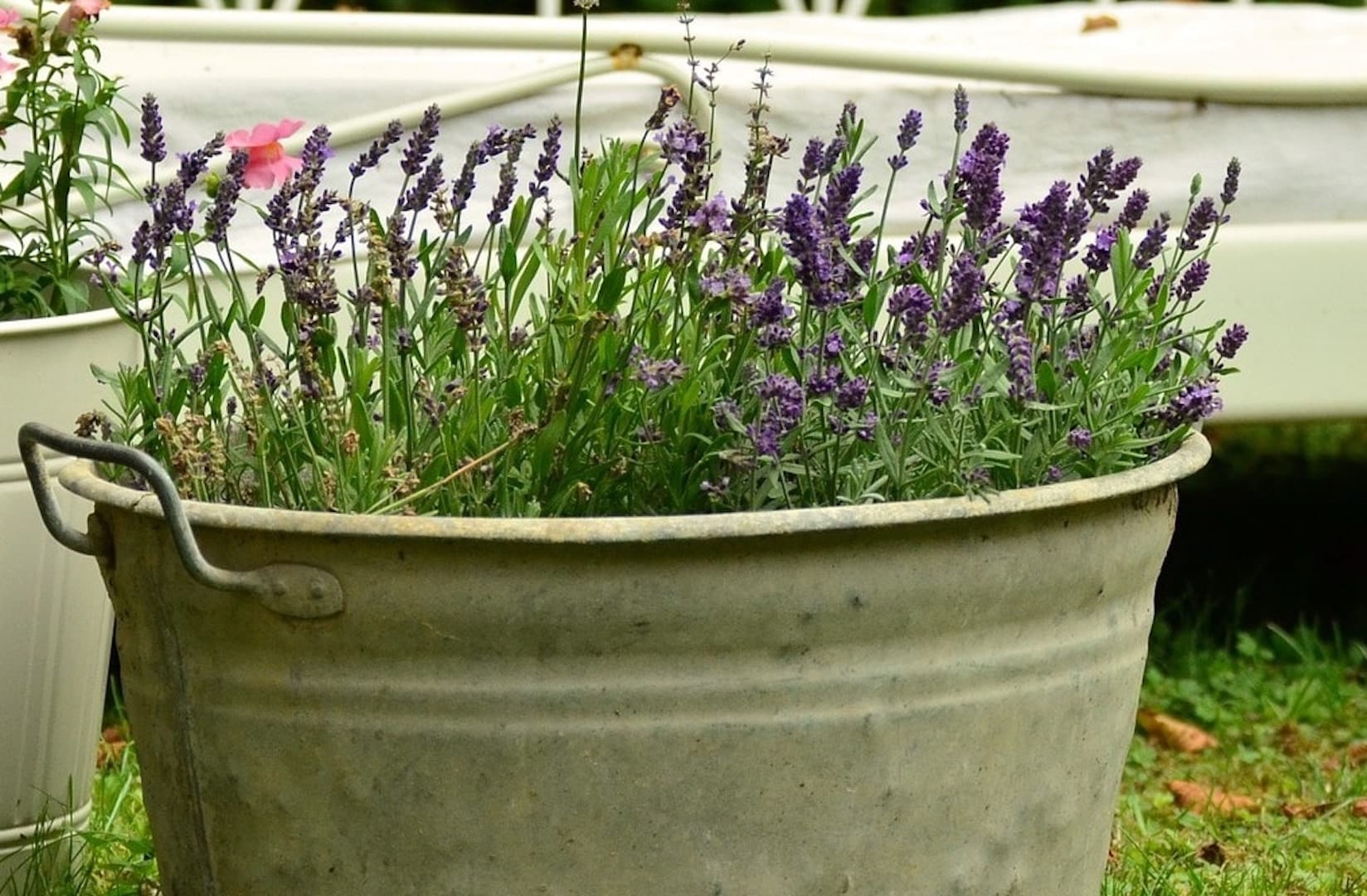Sometimes, the best way to combat a pest invasion is to have a green thumb.
Plants and flowers can be more than just a decoration or conversation piece–having the right plants can ward off some unwanted bugs simply due to their biology.
Of course, you don’t have to be a gardener or even have a garden to benefit from these plants. You can purchase them at local shops, keep them in a planter, and place them around your home.
While you shouldn’t rely exclusively on plants for residential pest control, some plants that thrive in Northeastern and Southeastern Pa., as well as the Lehigh Valley, are helpful in warding off different pests.
Take care of these plants, and they will take care of you. As for which plants are the best, there are plenty to choose from. Here are some tips for planting pest-resistant plants and seven of the best plants you can buy to keep bugs away.

What Pests Can Plants Help Prevent?
First, when relying on plants for pest control, it’s essential to understand what pests these plants actively combat.
Plants are very helpful in keeping away common garden bugs, such as aphids, cabbage moths, and beetles. Some plants, including mint and lavender, are even helpful in warding off rodents, mosquitoes, and spiders.
However, no pest control professional would recommend plants as an effective rodent repellent, especially since rodents are more active during colder months.
Furthermore, pests like termites, cockroaches, and bed bugs are not impacted by plants at all but can actually be attracted to your garden if left overwatered or in poor shape.
Therefore, practicing proper gardening maintenance and other preventative pest control measures is essential to combat more aggressive pests.
Gardening Tips to Avoid Pests and Establish Plants
Homeowners must practice proper gardening procedures to help plants become established and avoid inviting other pests.
For example, overwatering plants or providing poor drainage will cause the plant to die while also inviting bugs like aphids, water bugs, and cockroaches to your garden.
To ensure that anything you plant grows and does not attract pests, practice these strategies:
- Wait Until After the Last Frost: Most pest-repelling plants are sensitive to cold—wait until after the average last frost date (mid to late April in PA) to plant outdoors.
- Choose Native or Hardy Varieties: Select pest-repelling plants that are hardy in USDA zones 5–6, which cover most of Pennsylvania. This improves survival and pest resistance.
- Use Companion Planting: Position pest-repelling plants near vegetables or flowers they protect—e.g., marigolds around tomatoes or basil next to peppers.
- Space Plants Properly: Crowded plants are more prone to mold and pests. Allow enough room for airflow and sunlight to reduce the risk of infestation.
- Monitor for Pests Anyway: Even repellent plants can occasionally attract pests if they are overwatered or not properly maintained—check leaves regularly and remove eggs or insects manually if needed.
With that said, here are seven plants that can help keep bugs away from your garden in your house that you can experiment with this year.
1. Chrysanthemums
The chrysanthemum is the perfect option if you want a flower that works to deter a plethora of bug species. These pretty blossoms protect against ants, Japanese beetles, roaches, bed bugs, spider mites, silverfish, ticks, and even lice!
In fact, parts of this plant are used in many insecticides and other products used to keep bugs away. They really are the ideal pick for warding off unwanted, multi-legged, or winged visitors.
Plus, they come in a variety of colors, including vibrant reds, yellow, and violet. It’s the perfect pop of color for your garden or windowsill.
These flowers are fall perennials, making them the perfect go-to for keeping overwintering pests out. And they smell wonderful as well. Plant them in the spring, and you will have strong blooms in the summer and fall.
2. Mint
Mint is your herb if you want a protective plant that grows quickly and spreads quickly. Mint is an excellent bug repeller, but you must be cautious when planting it.
Once it starts to grow, it will spread rapidly, and it can become a nuisance itself. Of course, you don’t have to plant mint right in your garden. You can use planters and place them just about anywhere.
Mint works as a wonderful repellent against spiders, ants, and mosquitoes. It’s not hard to come by and even easier to grow.
Again, keep in mind that this plant spreads quickly, and it can be extremely hard to get rid of once it has taken root. However, if you plant it strategically, you will have an effective repellent and a pleasantly scented herb that will go great in your iced tea!
3. Citronella Grass
A common ingredient used in repellents and yard candles is citronella grass. This citrus-smelling grass is easy to grow in gardens or in planters. It’s also the perfect repellent for flying insects.
It’s a low-maintenance plant that does best in warmer climates. Keep in mind that this plant has a very strong scent. So, if you aren’t a fan of lemons, it may not be the plant for you.
4. Basil
If you are looking for a plant that works as a repellent and adds flavor to your favorite dishes, basil is a great choice.
This plan is a smart addition to your kitchen as it repels flies and mosquitoes. This plan has a very pleasant scent and doubles as an herb garden in addition to a bug repellent.
These plants need plenty of daylight and a warm environment, so though they can be grown outdoors, it may be best to keep a planet inside your home. If you have a decent amount of heat and sunlight in your house, you can keep these plants all year round.
5. Lavender
Effective against such annoyances as mosquitoes, fleas, flies, and moths, lavender is a beautifully fragrant plant. The scent is relaxing, but it’s just as effective dry or in other forms as it is alive.
This plant does well in drier soil, and you should be careful not to overwater them. It is important to note that lavender does attract honeybees, which is excellent for the ecosystem, though it may not be something you want near your house.
If you want the effects of lavender without attracting bees, you can always use an extract or dried variety.
6. Marigold
Another beautiful flower that doubles as a repellent, Marigolds are lovely blossoms that bloom in various colors. This plant is easy to grow and has a knack for repelling aphids, flies, and mosquitoes.
In fact, they attract insects that will feed on aphids, so it may be a great plant to add near your garden to keep beetles and aphids away.
Low maintenance, you can keep these plants all summer with proper irrigation and care. However, their roots can get gray mold and tend to suffer from root rot.
7. Rosemary
Rosemary is a highly effective bug deterrent and a fantastic herb for your plate and garden. Not only does it add some spice to your cooking, but it can also protect your vegetables from harmful insects and ward off mosquitoes. Rosemary is often used in a homemade repellent that leaves a pleasant scent.
These herbs do well in a hot and dry climate and are perfect for growing in containers around your kitchen.
Plus, you can shape them as they grow, so they make wonderful decorations as well. There’s nothing this herb can’t do!
8. Bonus – Catnip
Our bonus herb may be an excellent choice if you have a furry, purry friend. An herb cats love, it also acts as a strong repellent to many bugs like mosquitoes, flies, deer ticks, and cockroaches. Easy to grow, it can be made into an effective repellent or just ward off insects from a planter.
Though this is a versatile plant, catnip can quickly take over your garden. Be careful where you plant it because it will grow fast and can be quite invasive.
When Plants Fail, Professional Pest Control Is Here
You don’t always have to look at sprays to keep bugs away from your home. But it’s time to call in the big guns when preventative measures fail.
Contact a professional pest control expert if you are struggling with a pest control problem. The longer you wait or rely on preventative measures like garden plants, the worse the infestation will grow.
The Pest Rangers offer monthly pest control plans in Pennsylvania that help repel over a dozen species of pests, including common home and garden pests.
FAQs
Do pest-repelling plants really work?
Yes, many plants contain natural compounds (like essential oils) that deter insects. While they won’t eliminate pests completely, they’re effective in an integrated pest management plan.
Can I plant these near vegetables?
Absolutely! Many pest-repelling plants are also companion plants—they improve the health of nearby vegetables and deter harmful bugs.
Do I need a lot of these plants to see results?
Not necessarily. Even a few well-placed plants near entryways, garden beds, or patios can help. For large areas, use multiple clusters for better coverage.



























